Healthcare: Social Media Risks to Patient Information and PHI
VerifiedAdded on 2022/08/13
|5
|1089
|17
Report
AI Summary
This report addresses the critical issue of social media risks to patient information within the healthcare setting, emphasizing the importance of protecting Protected Health Information (PHI). It begins by defining PHI according to HIPAA and highlights how social media usage can jeopardize patient privacy, potentially leading to liability for healthcare providers. The report underscores the necessity for healthcare professionals, including nurses, to adhere to professional guidelines on social media use, understanding the settings and policies of various media platforms. It explores concepts of privacy, security, and confidentiality, emphasizing the right of patients to control the disclosure of their health information. The involvement of interprofessional healthcare teams is recommended to collaboratively find solutions to mitigate problems related to electronic health information protection. The report also examines evidence regarding social media usage and PHI, including privacy violations and ethical infringements. It highlights the importance of awareness among healthcare professionals regarding social media's impact on patient care and professional reputation, along with the implications of organizational policy. Finally, the report references HIPAA and the HITECH Act, detailing legal and criminal provisions for violations, and guidance from organizations like NCSBN and ANA, to ensure patient safety and uphold professional care practice requirements. It includes references to relevant literature supporting the discussed concepts.
1 out of 5
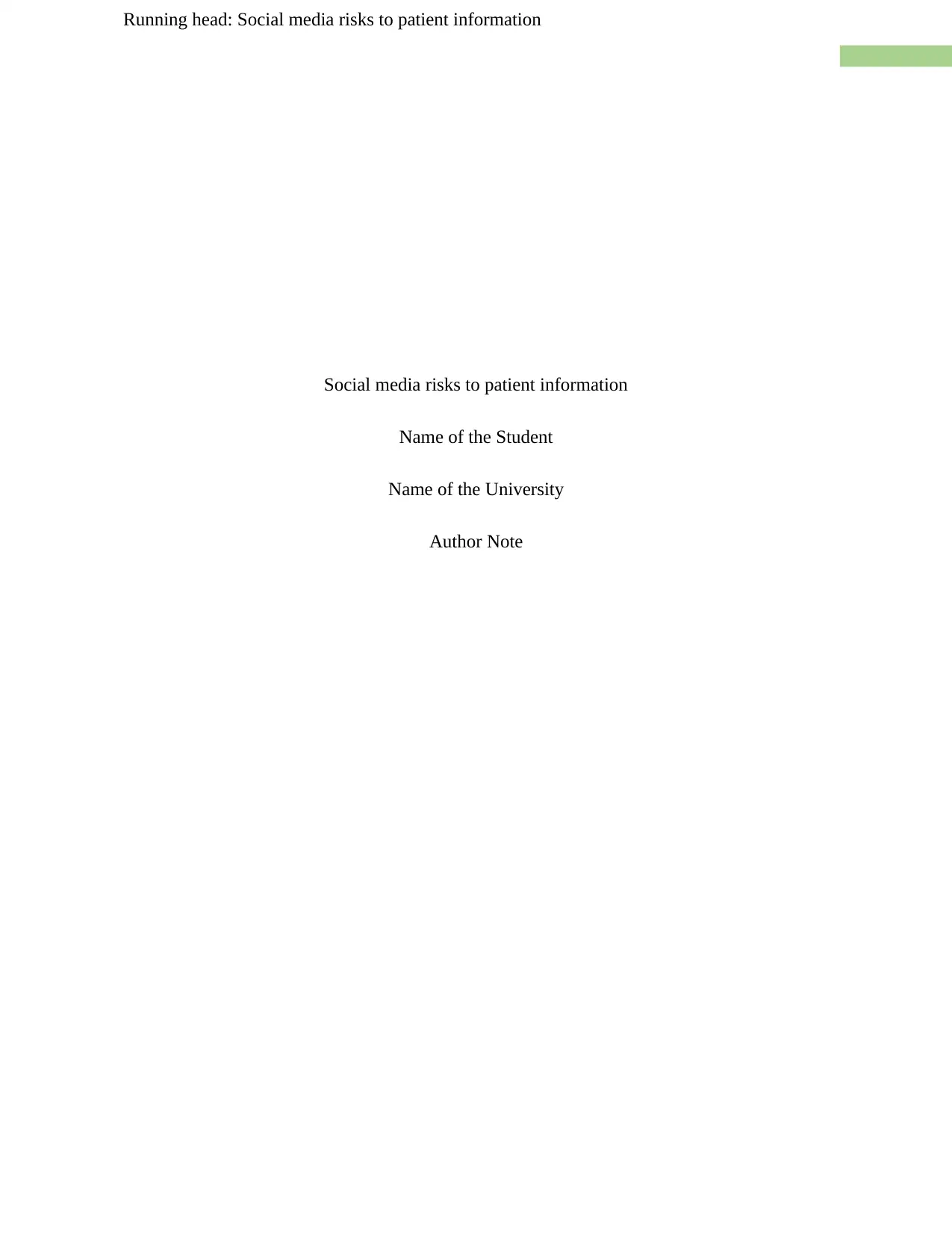
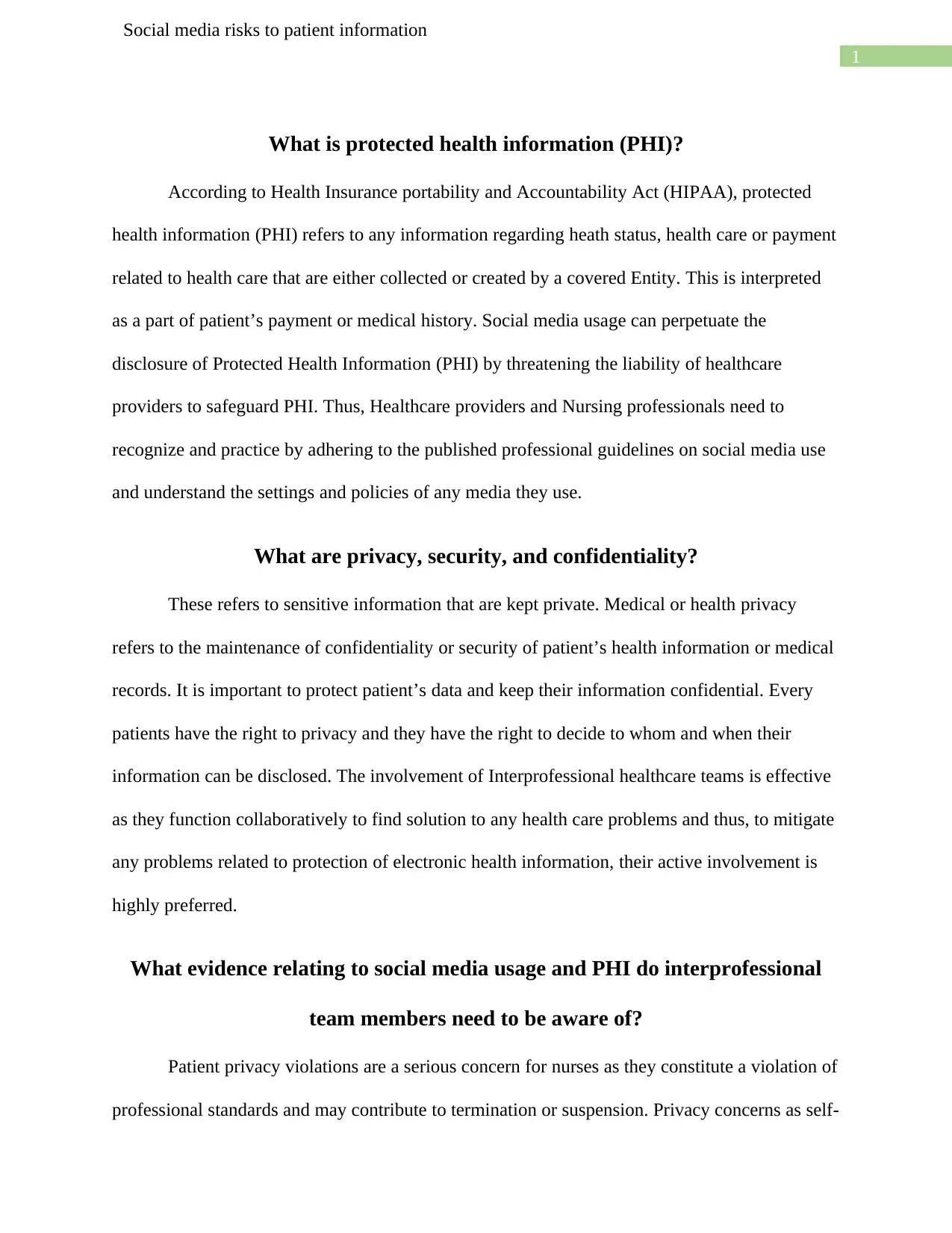
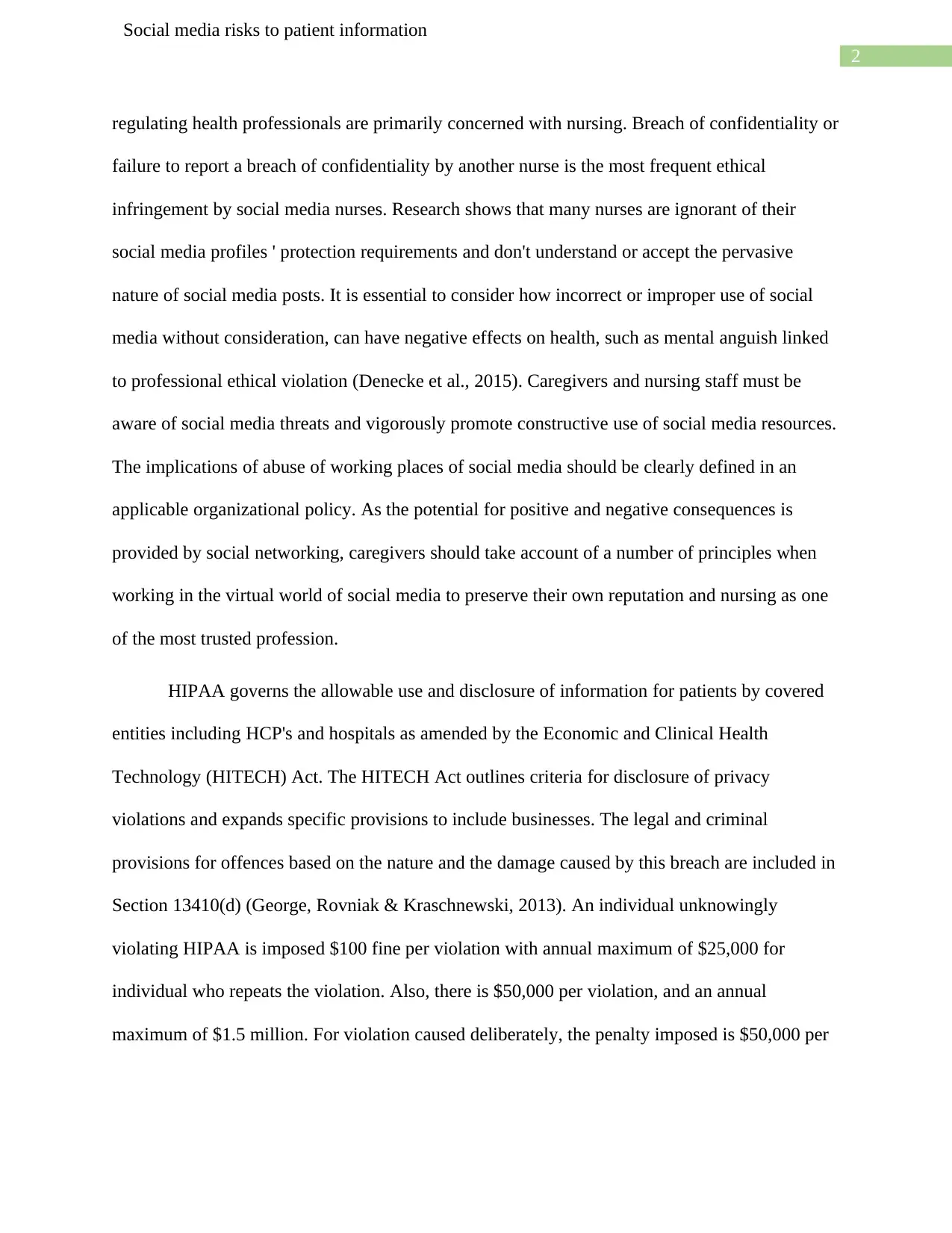

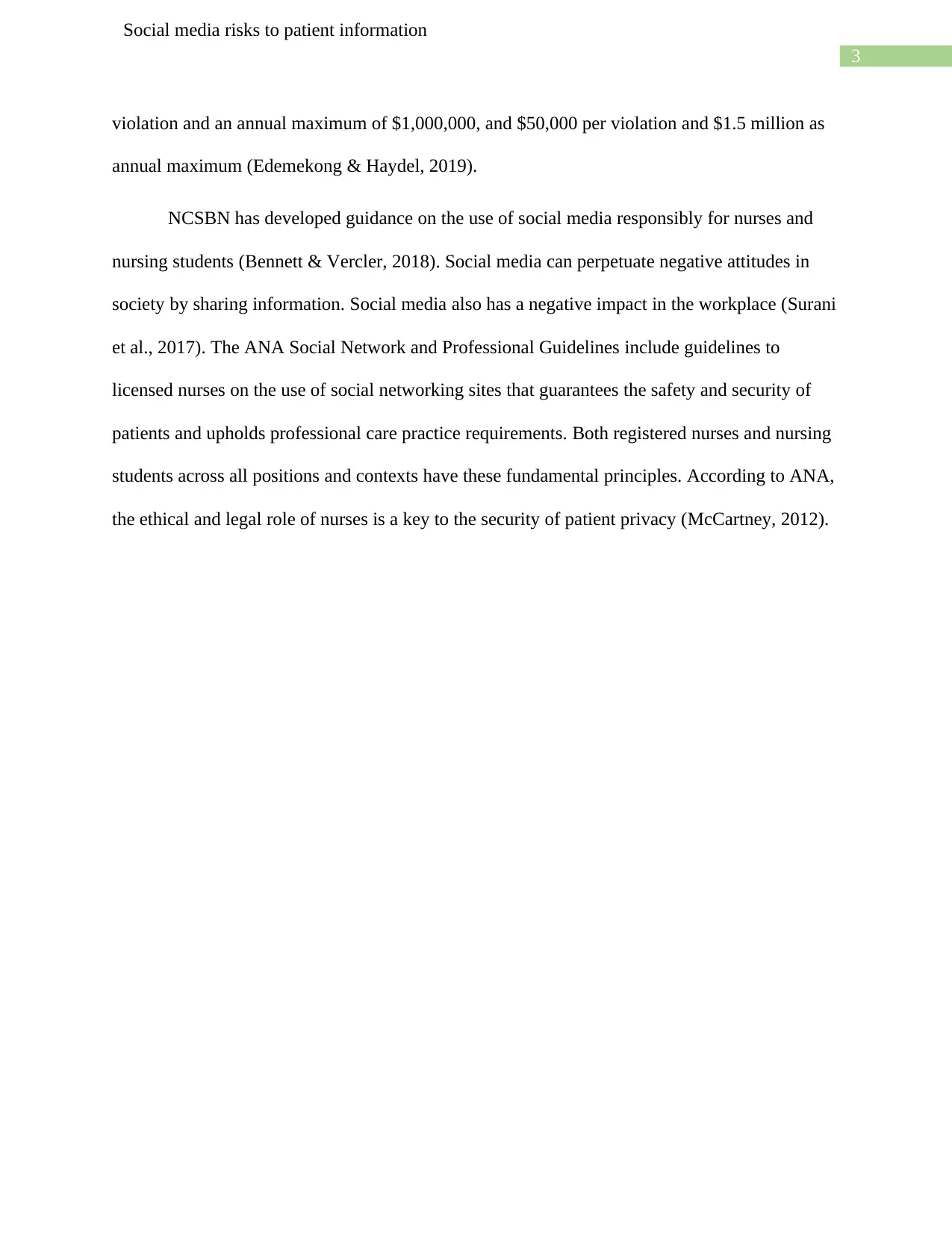
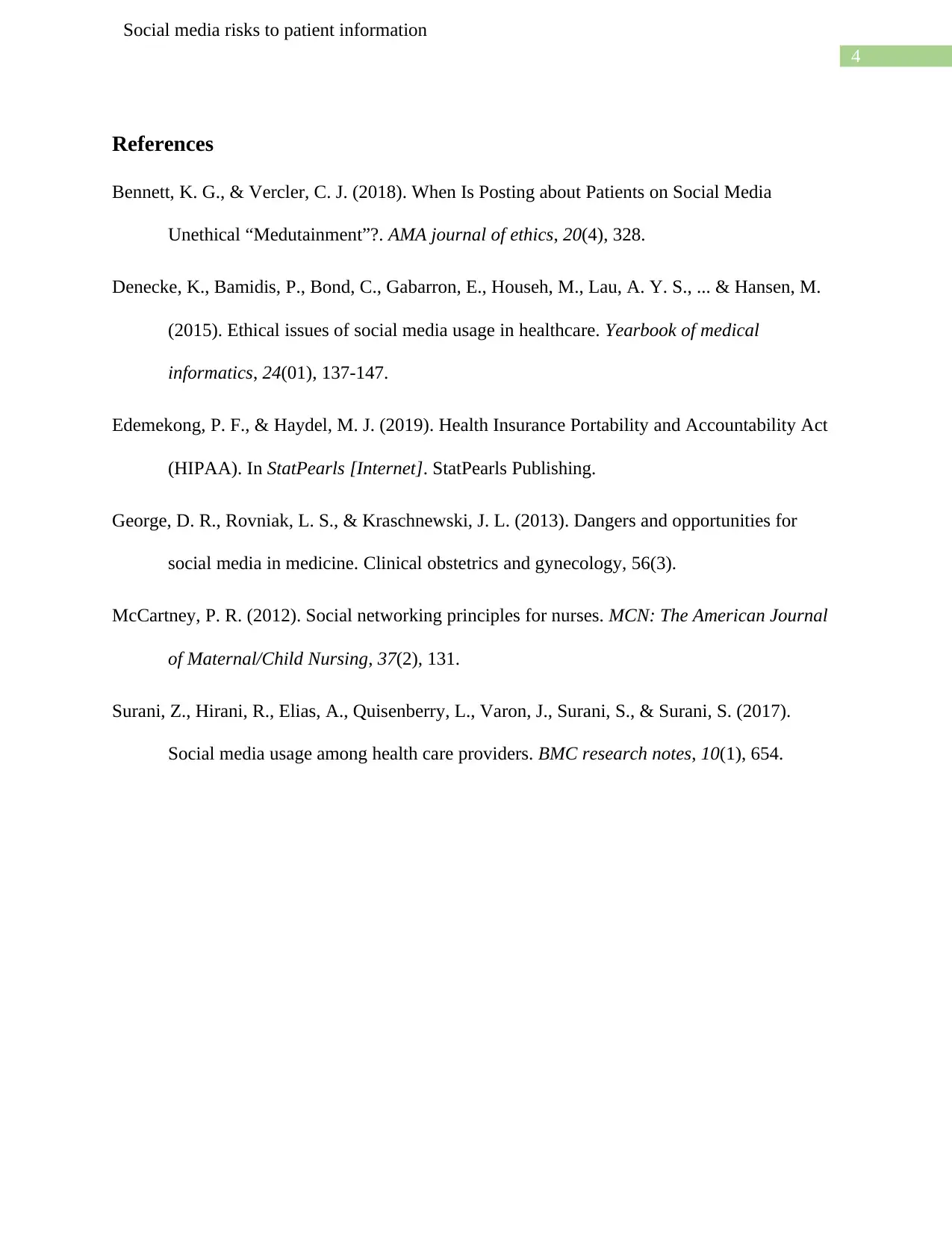





![[object Object]](/_next/static/media/star-bottom.7253800d.svg)